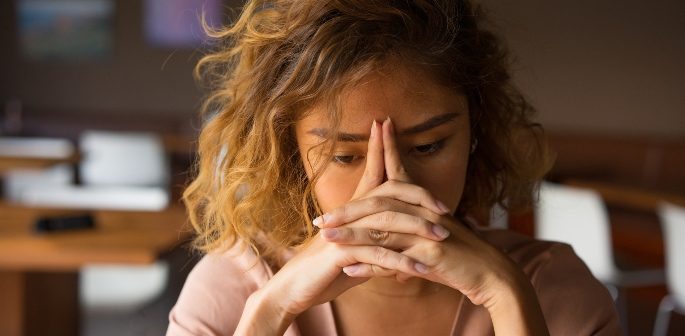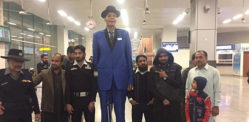"I was doubting whether it was all worth it"
There is growing evidence that self-employed British Asians from South Asian communities have struggled immensely to keep their businesses afloat during covid-19.
With lockdown rules easing in the UK in 2021, the self-employed are still feeling the effects of this global crisis.
In January 2021, 57% of self-employed workers were earning less than £1,000 per month, up from 31% in January 2020.
Taking all government support into account, including the Self-employment Income Support Scheme (SEISS), many industries report being worse off as a result of the pandemic.
The rapidly changing rules left many in a state of confusion and stress but how did they cope?
Here, DESIblitz explores several small businesses that have each experienced the brutality and hardship of Covid-19.
The British Asian Wedding Industry Loses out
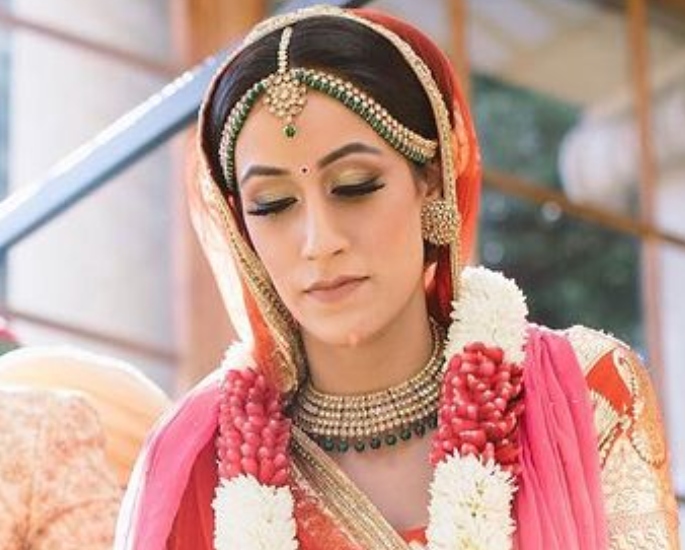
Asian weddings are usually grand, opulent occasions, however, Covid-19 has brought restrictions on social gatherings.
Wedding guests were limited, religious buildings temporarily closed and many ‘non-essential’ businesses were forced into lockdown.
Naturally, this caused many to cancel their weddings entirely, in favour of rescheduling for a much later date. Others went through with their weddings but were limited in what they could choose.
Henna artists, catering services, hair and make-up artists and wedding dress designers were not allowed to offer their services to brides and grooms.
Rohita Pabla Wedding & Events is a company who “create, deliver and execute luxury & contemporary Indian weddings across the UK and abroad”.
Owner, Rohita Pabla, explained:
“When we initially went into lockdown in March 2020, the expectation was it would blow over fairly quickly.
“Weddings were pushed back immediately. But the lack of clarity from the government made it difficult to know what to expect”.
Nonetheless, the luxury wedding events brand continued to plan the weddings booked for 2020. Sensing further setbacks, they also worked on contingency plans for all clients.
However, plans fell into further disarray when the UK government announced mandatory rules.
This meant people could not leave their homes unless absolutely necessary.
Rohita felt uncertain and anxious when the government announced a complete lockdown imposed a maximum of 30 attendees. She states:
“Most of our clients decided to postpone their weddings.
“The impact to ourselves and the business was substantial. There were no new enquiries as people weren’t thinking about weddings.
“As soon as the lockdown was announced we began diversifying the business. We launched our brand new online wedding hub (The Brides Club) in September 2020″.
The unrest amongst government guidelines continues to keep fragile industries like this in the dark, forcing businesses to adapt or crumble.
The Government’s Position on Cancellations and Refunds
The Competition and Markets Authority (CMA) issued a lengthy statement in direct response to urgent problems being experienced by the self-employed in this sector.
Some of the points included:
- “Where lockdown laws prevented a wedding from going ahead on the agreed date, the starting point under the law is that the consumer should be offered a full refund.”
- “The wedding business may be able to withhold certain limited amounts relating to expenses it has already incurred in respect of the wedding.”
- “‘Non-refundable’ deposits were available to consumers.”
Self-employed workers may withhold costs that fall in these categories:
- Costs that the business had already incurred e.g. buying food or flowers for a specific wedding which could not be re-used.
- “A fair proportion of the business’s overhead expenses that relate closely to the cancelled wedding, like staff and other costs involved in planning for it.”
Notably, the wedding industry is likely to have to return much of the money, leaving them at a financial loss.
It is worth highlighting that all of the self-employed workers DESIblitz spoke with firmly stated that they did not feel the government has provided adequate financial assistance.
Wedding Guests and Rules
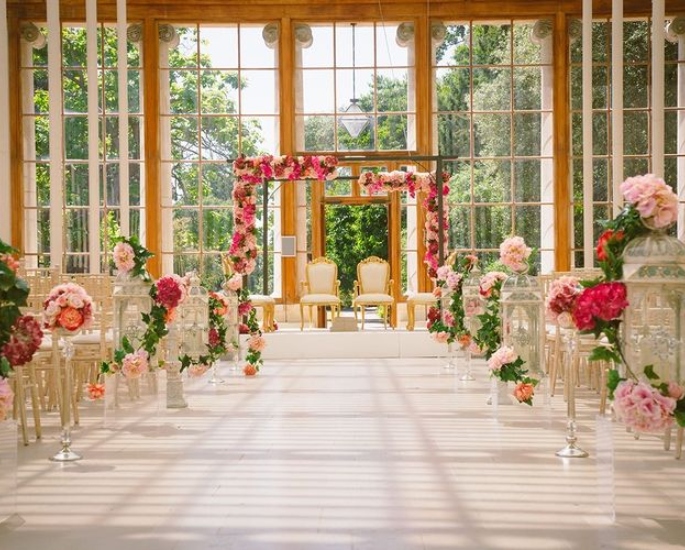
Many couples were content to wait and see whether their wedding could go ahead. Postponing was not a huge problem for them.
However, for other couples, this was not a viable option – particularly where they had to make a decision about whether to spend money.
In addition, postponing a wedding could incur more cost for the couple and their families.
Rohita stressed that:
“The biggest factor that we have had to adapt to is ensuring our staff and guests are wearing face coverings whilst not seated”.
Other wedding businesses agreed that it was a struggle to navigate the weddings that did go ahead during this time. This was due to the ease with which they could accidentally breach lockdown rules.
Going ahead with weddings could breach lockdown laws including:
Scaling Back
The British Asian wedding industry was forced to scale back drastically.
Like thousands of couples, Londoners Vishal, aged 25, and Ravika, aged 24, had to postpone their wedding and reception after the coronavirus pandemic struck.
It was meant to be an extravagant affair with three separate events and 400 guests.
Although, the prospects of a big blowout were minute because of the safety measures imposed on weddings.
Anisha Vasani from Bridelux, a specialist brand for the luxury wedding industry, estimates that British Asian weddings could account for nearly half of the UK wedding industry:
“The average Asian couple spend between £50,000-£100,000 on their wedding”.
This depends on how many functions they hold for their celebrations, with costs only expected to grow.
In fact, many self-employed people and businesses specialising in supplying the Asian wedding market have suffered during the pandemic. Sales were halting rapidly.
Unique, an Asian clothing boutique in Bedford states bridal outfits are the mainstay of their sales.
In addition, Deep Bajwa runs Opulence Events, an event planning company and worryingly expressed:
“Last year I had 37 weddings, and this year we managed to get one in before lockdown”.
Big money is spent on British Asian weddings. The rules caused by Covid-19 has had huge implications for the livelihood of suppliers, caterers, beauty workers and designers.
The Beauty Industry Left in Limbo
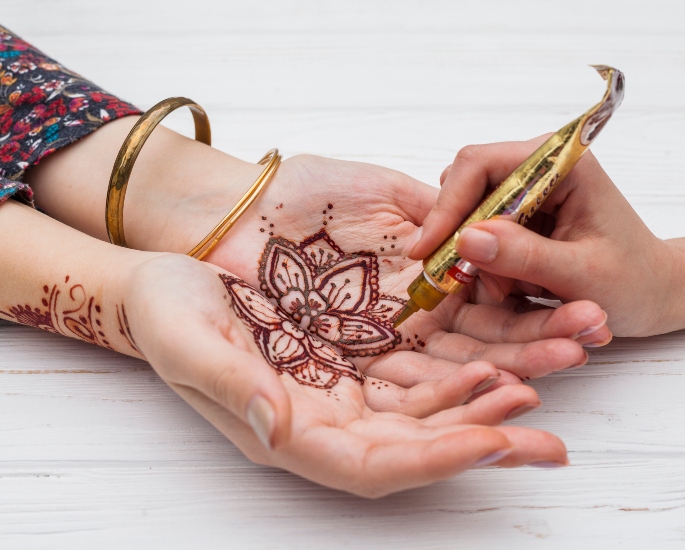
Numerous small businesses in the UK beauty industry are self-employed.
Many even operate from the comfort of their homes.
Shockingly, beauty professionals have lost more than £11,000 in earnings during Covid-19.
5% of all salon owners, beauty therapists and hairdressers who stopped trading during the pandemic expect to continue or restart their current business now that restrictions have lifted in 2021.
Staggeringly, only 26% said that they were eligible for the furlough scheme throughout the different lockdowns.
This results in thousands across the nation struggling to keep their small business alive.
Alan Thomas, UK chief executive of Simply Business asserts:
“The hair and beauty industry has been hit particularly hard in the past year.
“The scale of the impact on small businesses and the self-employed is abundantly clear in our latest research”.
However, despite the challenges, many believe that the industry is strong and will bounce back. Since salons have reopened, many have paid extra just to secure a coveted appointment.
Hair and Makeup
Zara Hussain, a makeup artist and beauty therapist based in the West Midlands, has lamented about her loss of business, revealing:
“Making no money, losing my clientèle, struggling to pay bills, lead to depression and anxiety”.
The sense of worry is prevalent throughout the beauty industry.
Cancellations of weddings was a hard blow for Zara’s job as a bridal makeup artist as she lost countless bookings:
“I lost a lot of bookings and struggled to keep an organised diary due to uncertainty and cancellations”.
Moreover, Zara feels that the UK government “handled everything very poorly” as she speaks about the changes with a touch of melancholy:
“I don’t get as many party bookings due to smaller weddings and people decide to get ready themselves.
“So many people have had to close their business and sell off to pay off their bills and debts that this pandemic got them into.”
This highlights the devastating nature that Covid-19 has caused on businesses but also the mental state of those self-employed.
Self-employed Henna Business
Similarly, Yorkshire based henna company, The Final Touch, also believes the government made mistakes.
Founder Juwairiyya specialises in body art and making personalised gifts that incorporate the theme and patterns of henna.
Juwairiyya says that she “lost out on income” and the circumstances halted the growth of her business. As a self-employed woman, this prevented her from building her client base for a year.
She declares:
“With henna, you have to keep the practice up as it is an art.
“In respect of my events, I was unable to do henna on people but participated in a few online events where I spoke about henna.”
Nonetheless, her self-employed status has restarted since restrictions eased. Unfortunately, the workload is still scarce compared to pre-pandemic times.
Urban and Desi Parties put on Pause
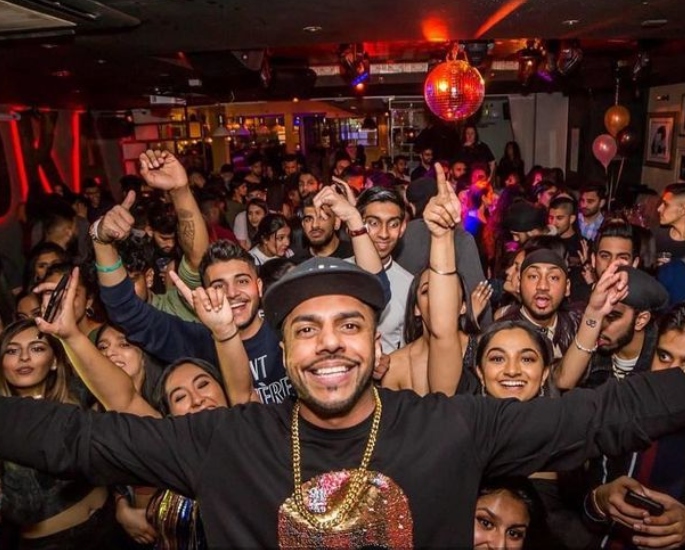
DESIblitz caught up with Echo Events who run an urban Desi night called “Fusion Nights”.
Fusion Nights began in 2017, originally starting in Nottingham.
Fortunately, they had great success and have since expanded to cities including Birmingham, Leicester, Portsmouth and Bristol.
Over the years, Echo Events started to sub-brand such as Fusion Nights ‘Bollywood Edition’ and Fusion Nights ‘Lounge Edition’.
However, this company was one of many who had immediate worries in early 2020.
A company spokesperson explained:
“During the first lockdown, our immediate worries were about the idea of us being a relatively small business and that we would not know how long this lockdown would last.”
In addition, the lack of information was confusing:
“Over the initial first few weeks, there was no information regarding the hospitality and entertainment industry which was frustrating”.
When asked about the effects of the cancellation of clubs and events, they explained:
“We had pre-paid venue hire fee’s, DJs & live performances at certain venues.
“They only allowed us to move dates and not offer full refunds”.
Sadly, they feel the government provided inadequate financial assistance. This lack of guidance left their Desi parties on pause, with no real indication as to a re-start time.
Echo Events needed to adapt their rules as different areas of the UK were put into different tier systems.
To meet the government guidelines, household bubbles couldn’t mix and food must be served with any alcohol purchased.
Therefore, due to the increase in cases in certain parts of the country, ‘nights out’ were cancelled or postponed to future dates.
Customers were offered full refunds if any of the Fusion Nights were cancelled “due to restrictions being placed in the city”.
This represents the financial loss that companies continue to face with no real indication of government assistance.
Covid-19 and the Food Industry
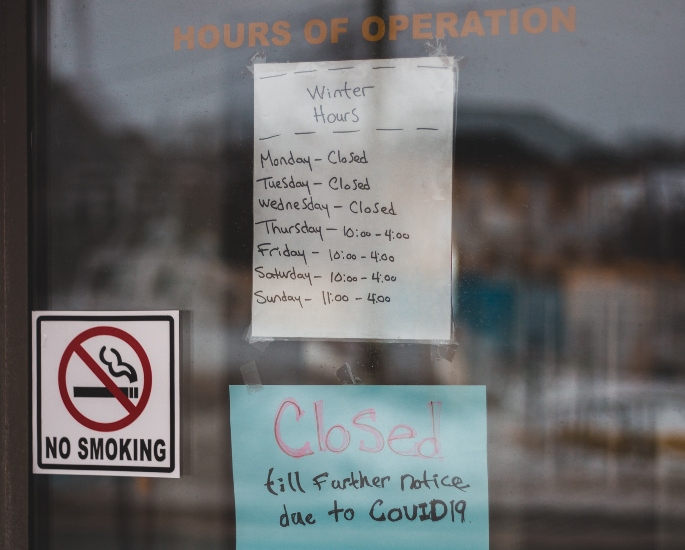
Those self-employed within the food industry have also been dealt a major blow because of Covid-19.
The fluctuation of regulations forced many restaurants to offer delivery or takeaway options.
When rules began to ease, establishments could reopen if they had an outside dining area but some restaurants could not achieve this.
Blue Monk, a Bedford-based Indian and Nepalese restaurant, illustrated their difficulty dealing with the Covid-19 restrictions.
Since they do not have dining space outside, they relied heavily on delivery and takeaway but profits dropped massively.
However, they have ensured there is “more space between tables, sanitisers on each table and floor marking for 2m distances.”
Regardless, business hasn’t increased as much as they would like as people are still cautious of potential exposure to the virus.
Cupaacakes
DESIblitz spoke with Noori, founder of small business Cupaacakes.
As a self-employed home business specialising in desserts, Noori immediately became concerned about her stock, reporting:
“Due to the mayhem, the supermarkets were all out of most essential goods as customers were panic buying.
“As a self-employed person, my main source of income comes from my big events.
“The fact that all weddings had to be cancelled/ postponed caused me a lot of loss as I pre-order equipment for specific customised orders. This meant I couldn’t even reuse those products I purchased.”
Furthermore, she believes “the government didn’t help much or support small businesses like us”.
As a small community, there wasn’t many clear guidelines or help in aiding the self-employed.
Noori notes that she was worried she would have to close down “due to the uncertainty of whether we will ever get back to normal.”
She adds:
“With all the cancellations, all the loss, all the stress I was doubting whether it was all worth it.”
Fortunately, during the second lockdown, business for Cupcakes increased.
Noori started doing contact-free deliveries as a precautionary measure like numerous other companies.
Cautious Optimism
Evidently, many British Asian self-employed businesses have had to adapt during this pandemic.
With government plans to return to ‘normality’ on June 21st, 2021, there is a growing optimism amongst the self-employed sector.
Although, many businesses are still moving cautiously due to the discovery of different Covid-19 variants across the UK.
With this, the government may suddenly decide to postpone their proposed unlock date which could prove catastrophic for some businesses.
However, companies such as Cupaacakes and Echo Events who have successfully adapted provides a model of relief for those struggling.
It shows that with grit, determination and perseverance, the self-employed can triumph against this hideous crisis.




















































